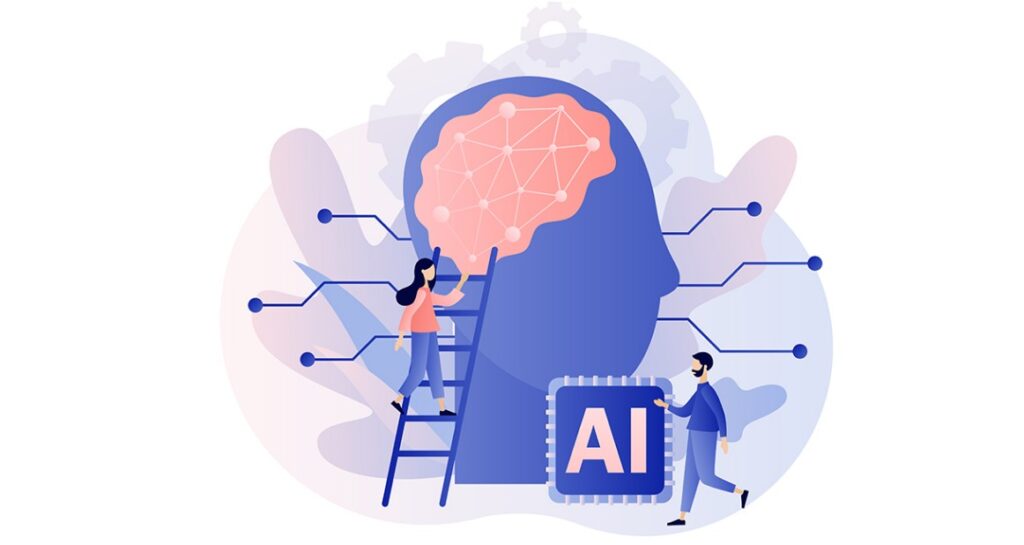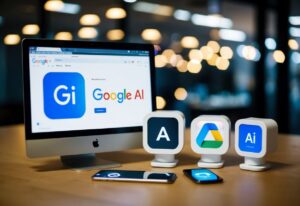What is the AI solution?
What is the AI Solution?
As the world becomes more digital, Artificial Intelligence (AI) is transforming how businesses and organizations work.
From automating mundane tasks to offering predictive insights, AI solutions are empowering businesses to achieve efficiencies, enhance customer experiences, and gain competitive advantages. This blog explores what an AI solution is, its diverse applications, real-world examples, benefits, and steps to implement these transformative technologies effectively.
What is an AI Solution?
An AI solution refers to a specific application of artificial intelligence technologies designed to address particular problems or streamline processes.
It leverages capabilities such as machine learning (ML), natural language processing (NLP), computer vision, and robotic process automation (RPA) to deliver intelligent functionalities. AI solutions can be off-the-shelf products tailored for specific industries or custom-built systems integrated into a company’s existing infrastructure.
Some prominent AI tools and platforms include:
- Google Cloud AI for scalable machine learning models.
- IBM Watson for cognitive analytics.
- OpenAI GPT-4 for advanced conversational AI.
- UiPath for robotic process automation.
Types of AI Solutions
AI solutions span across multiple domains, solving unique problems and opening new opportunities. Below are some of the key types:
1. Predictive Analytics
AI-powered algorithms analyse historical data to identify trends and forecast future outcomes.
- Use Case: Retailers like Target use predictive analytics to anticipate inventory needs.
- Tool: Google Cloud AI provides robust platforms for demand forecasting.
2. Natural Language Processing (NLP)
Machines interpret and interact with human language for tasks like translation, sentiment analysis, and conversational AI.
- Use Case: Chatbots such as Zendesk’s AI Bot automate customer service queries.
- Tool: IBM Watson Assistant simplifies chatbot implementation.
3. Computer Vision
This AI branch processes and interprets visual information from images or videos.
- Use Case: Tesla’s Autopilot uses computer vision for real-time navigation in autonomous vehicles.
- Tool: Microsoft Azure Cognitive Services enables facial recognition and object detection.
4. Robotic Process Automation (RPA)
Automates routine, rule-based tasks across various industries.
- Use Case: Banks like Deutsche Bank use RPA to manage compliance processes efficiently.
- Tool: UiPath offers comprehensive RPA tools for businesses.
5. Generative AI
Generative AI systems create new content such as text, images, or designs.
- Use Case: Companies like Canva integrate generative AI for custom graphics creation.
- Tool: OpenAI’s DALL-E generates high-quality images from textual descriptions.
Examples of AI Solutions in Action
Healthcare
AI solutions have transformed diagnostics and treatment planning.
- Aidoc: Detects anomalies in medical scans to support radiologists.
- DeepMind: Used by the NHS to predict acute kidney injuries.
Retail and E-Commerce
AI-powered recommendation engines and inventory management solutions drive personalisation and operational efficiency.
- Amazon Personalize: Tailors shopping recommendations for individual customers.
- Zebra SmartLens: Tracks real-time inventory to optimise supply chains.
Finance
AI tools assist in fraud detection, financial modelling, and customer insights.
- Kensho AI: Simplifies financial modelling for investment firms.
- PayPal: Utilises machine learning to flag suspicious transactions (source).
Manufacturing
AI-powered predictive maintenance tools reduce downtime and improve operational efficiency.
- Siemens AI: Monitors industrial machinery for maintenance alerts.
Marketing
AI tools enable targeted campaigns, ad optimisation, and sentiment analysis.
- Phrasee AI: Enhances ad copy for better audience engagement.
- HubSpot AI: Assists in segmenting and targeting audiences effectively.
Benefits of AI Solutions
Enhanced Efficiency
AI reduces manual intervention, allowing faster and error-free task completion. For example, RPA tools like UiPath automate invoicing processes.Cost Optimisation
Businesses save costs by reducing errors and streamlining operations. Predictive maintenance systems, such as those by GE Digital, prevent expensive equipment failures.Better Customer Experiences
Personalised experiences through chatbots or recommendation engines significantly improve customer satisfaction.Actionable Insights
Advanced analytics platforms like Tableau AI help businesses make data-driven decisions.Scalability
AI solutions are scalable, growing alongside business requirements, making them future-proof. Platforms like Google Vertex AI support businesses through every stage of growth.
How to Implement AI Solutions
1. Identify the Problem
Define the challenge AI needs to address. For example, a retail chain may want to improve customer retention through personalised recommendations.
2. Select the Right Tool
Choose an AI tool or platform based on requirements, such as Microsoft Azure AI for analytics or IBM Watson for automation.
3. Run a Pilot Program
Begin with a small-scale implementation to evaluate feasibility.
4. Integrate with Existing Systems
Ensure that the AI solution integrates seamlessly with current infrastructure.
5. Monitor and Optimise
Use tools like DataRobot to evaluate the solution’s performance and refine it.
The Future of AI Solutions
As technology evolves, AI solutions are becoming increasingly sophisticated. Key trends to watch include:
- Edge AI: Performing AI computations on local devices for faster processing.
- Explainable AI (XAI): Making AI decisions more transparent and understandable.
- Autonomous Systems: Expanding applications in logistics and transport, such as Amazon Robotics (Amazon Robotics).
Conclusion
AI solutions are shaping the future of industries by solving complex problems with unprecedented precision. From predictive healthcare models to autonomous vehicles and hyper-personalised customer experiences, AI’s potential is limitless.
To start your AI journey, explore platforms like Google Cloud AI, OpenAI, and Microsoft Azure. Embrace the power of AI and transform your business today!





















